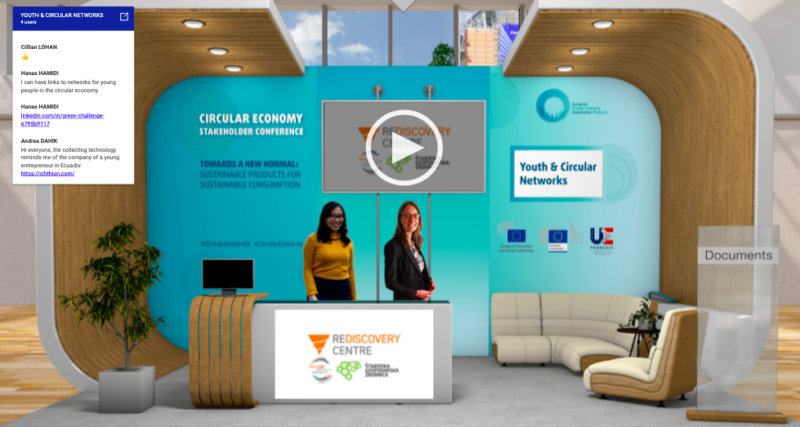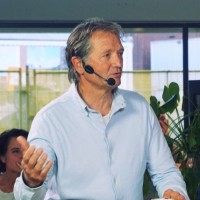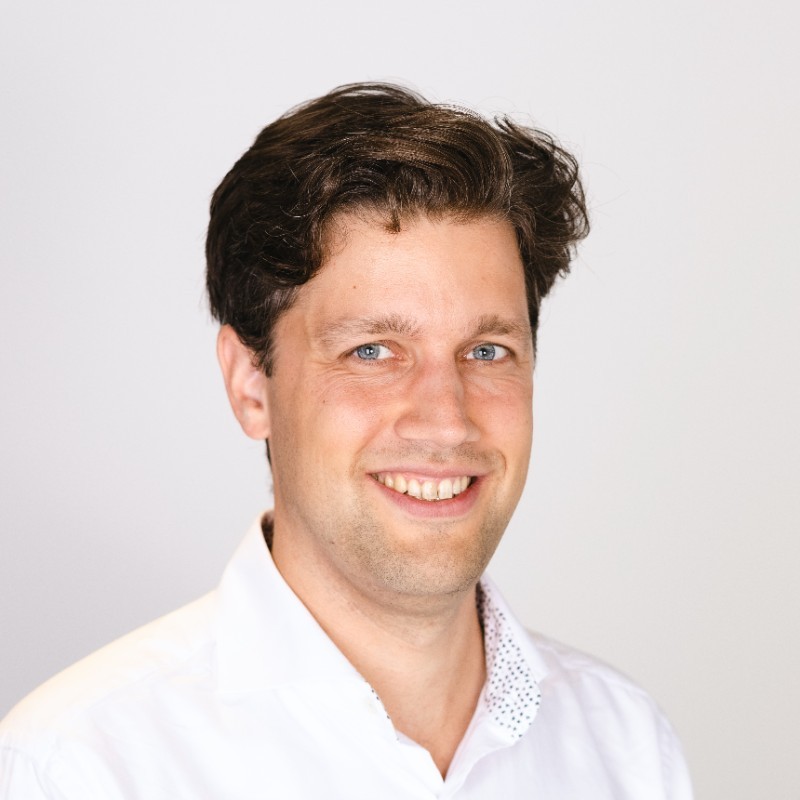ECESP Networking Village: Inspiring Young Generations to be the Center of CE Transition
April 07, 2022
On 1-2 March 2022, European Circular Economy Stakeholder Platform (ECESP) held its annual conference. Holland Circular Hotspot (HCH) gladly took part during the workshop session on circular building and infrastructure, also as an exhibitor in Youth & Circular networks booth for the networking village session.
For the booth session, HCH invited three inspiring circular professionals from different circular businesses to share their experiences, as well as their hopes to the young generation to work together for overcoming unsustainable consumption. They were:
- Bert van Son, CEO & Founder of Mud Jeans
- Casper van der Meer, CEO & Co-Founder of Better Future Factory
- Timo Bottema, Senior Business Developer of Closing The Loop
Interested to know more about the ECESP conference, rewatch the sessions here.

"It's become essential for companies to be involved with sustainability these days and attract the top talent that is out there. Young talented people want to work on sustainable solutions.”
Casper van der Meer, CEO and Co-Founder of Better Future Factory
Exploring the development of circular companies at the EU level through the young generation’s lens
On the first day of our themed sessions, there were three speakers who shared their views for young people starting out their own professional and personal ambitions and reflections on their journeys as circular professionals. The discussion was started by a round of questions from the HCH young stars, followed by the audience.
Key takeaways and advice for young people looking to work in circular jobs or start their own circular companies:
- Persistence and determination to keep going are integral for becoming successful with your circular startup.
- Sustainable offerings should first be well-designed, desirable, and appealing to the customers.
- Young people should not hesitate in asking for support and guidance from the circular economy networks.
- Communicating with the targeted customers should be done with the lens of positive campaigns that talk about the change and impacts.
- Total transparency is very important for sustainable and circular products, especially in the textile industry because it can help to assess and visualize the entire process of delivering the products.
- Experimentation, prototyping, and testing of theories or models that are used in designing products/services are important parameters for circular solutions.
- Designers and engineers have a huge role to play in the transition and creating products where it is easier to get materials back with their value retained.
All in all, plenty of opportunities are there for young people to start their circular journeys!
“The older generation valued reuse, repair, and being careful with the things that they owned because they knew scarcity and the importance of preserving resources. The lesson for the young is to bring that back: buy less, buy better.”
Bert van Son, CEO and Founder of Mud Jeans
Giving a voice to the young generation’s ambitions, hopes, and concerns towards circularity
On the second day of this intimate session with a young circular professional, we had Timo Bottema, senior business developer of Closing the Loop, sharing his first encounter with the sustainability field, his hopes, and concerns towards a circular economy, also his advice to other young professionals who want to shift or start their careers in the sustainability sector.
Key takeaways from the session:
- Having a sustainability part of your career does not necessarily shift your job or your organization. You can start by creating your current roles to be more sustainable.
- If you want to shift your job in the sustainability sector, you can improve certain skills set which can be beneficial in sustainable firms or companies as well.
- The challenge for circular IT companies lies in how they communicate the transition towards a circular economy to the IT companies. Limited regulations on e-waste hinder the companies to cooperate with circular IT companies to do collaborative actions overcoming e-waste issues.
- Using the data, numbers on opportunities, profits, and added values can be attractive to the companies with conventional business models to do CE transition.
- The ideal transition must be systemic but taking small parts in CE transition is also important.
The session was ended by a powerful reminder from our speaker which also summarized the discussion on the young generation’s point of view on working in the sustainability sector:
“Accept the fact that your companies may not have a tremendous impact yet on sustainability. However, you can keep supporting them and working towards the bigger goals in circularity together.”
Timo Bottema, Senior Business Developer of Closing The Loop
